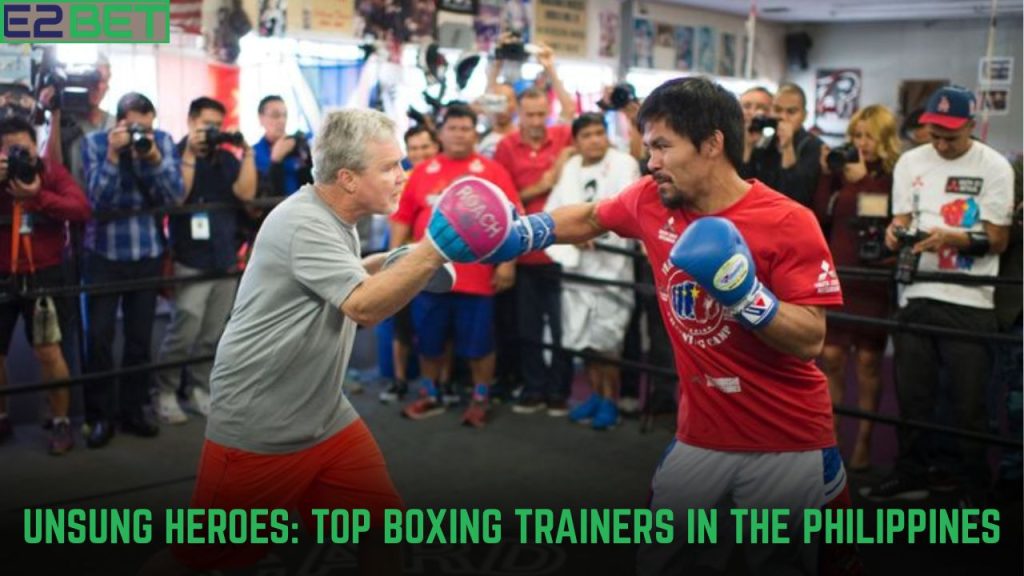In the fast-paced and unforgiving world of boxing, most of the spotlight is given to the fighters—the champions who raise belts, deliver knockouts, and become national icons. But behind every great boxer is a great coach. In the Philippines, boxing trainers are the unsung heroes who shape champions from the ground up. They dedicate their lives not for fame or fortune, but to cultivate greatness in others.
Table of Contents
This article highlights the lives, roles, and legacies of some of the top boxing trainers in the Philippines, along with the vital contributions these mentors make to the sport.
🇵🇭 Why Boxing Trainers Matter in the Philippines
Boxing holds a sacred place in Filipino culture. It’s a sport that transcends poverty, providing a path to success for many young Filipinos. But this journey wouldn’t be possible without the boxing trainers—mentors who not only build technique but also instill discipline, mental toughness, and heart.
From makeshift gyms in the provinces to world-class training camps, Filipino boxing trainers often start with limited resources but an unlimited passion for the sport. Their impact goes far beyond throwing punches; they are the minds and souls behind the fists.
1. Freddie Roach
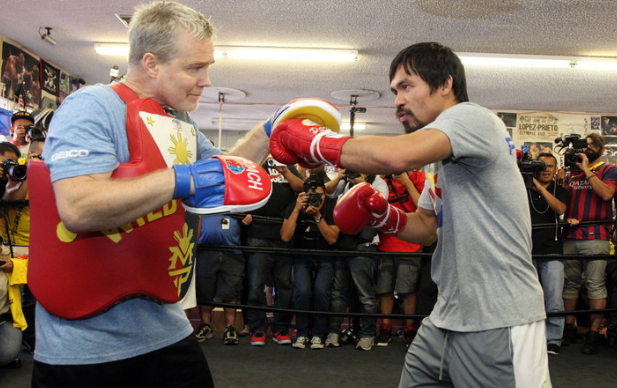
Known for: Training Manny Pacquiao
Gym: Wild Card Boxing Club (US), with strong ties to Team Pacquiao
Though American by birth, Freddie Roach has become an honorary Filipino. As Manny Pacquiao’s long-time trainer, he played a crucial role in transforming Pacquiao into an 8-division world champion. Roach’s training style emphasizes aggressive offense, relentless conditioning, and adaptability. His deep connection with Filipino boxing inspired many local coaches to study his approach.
“He taught Manny how to box smart. Roach built a fighter and a legend.” – Local sports columnist
2. Nonoy Neri
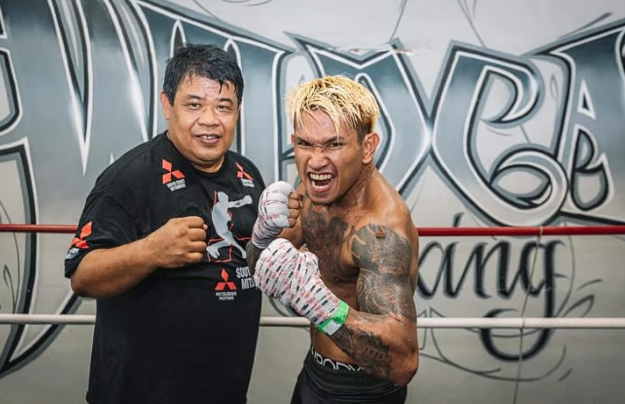
Known for: Working as Pacquiao’s assistant trainer and cornerman
Hailing from General Santos City, Nonoy Neri is considered one of the most respected homegrown boxing trainers in the country. His calm demeanor and deep technical knowledge made him a trusted part of Pacquiao’s team. Beyond Pacquiao, Neri has trained dozens of local fighters and remains committed to grassroots boxing development.
“Coach Nonoy is proof that dedication beats fame. He stays with the fighters, no matter how small the gym.”
3. Buboy Fernandez
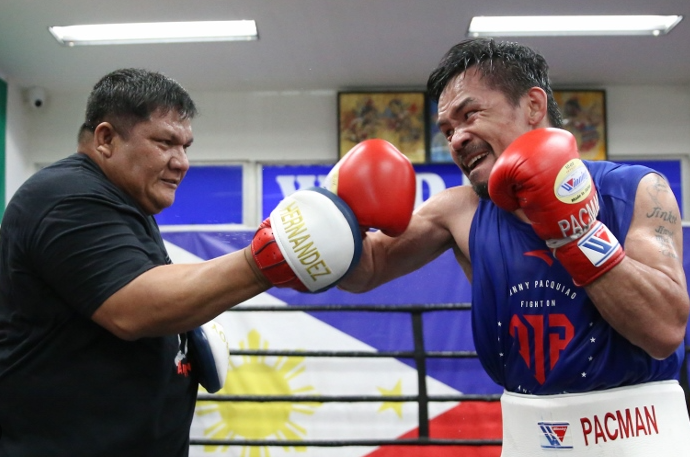
Known for: Pacquiao’s lifelong friend and assistant coach
Buboy Fernandez started from humble beginnings alongside Manny Pacquiao and rose to become a vital figure in Team Pacquiao. While not formally trained in coaching, his instincts and loyalty made him a key motivator and tactician. In later years, Buboy has taken the lead in training young Filipino boxers, passing on the same drive that shaped his and Pacquiao’s journey.
“Buboy represents the Filipino dream—rising from poverty through loyalty and grit.”
4. Rex “Wakee” Salud
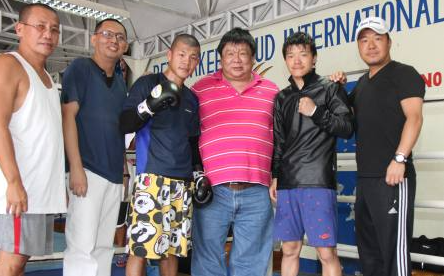
Known for: Promoting and managing world-class fighters, supporting Cebu’s boxing scene
While better known as a manager and promoter, Wakee Salud also played a hands-on role in developing boxing gyms in the Visayas region. His support of local trainers and fighters helped turn Cebu into a boxing hub. Many rising trainers in the region were mentored or funded by Salud, contributing to a lasting legacy.
5. Edmund Villamor
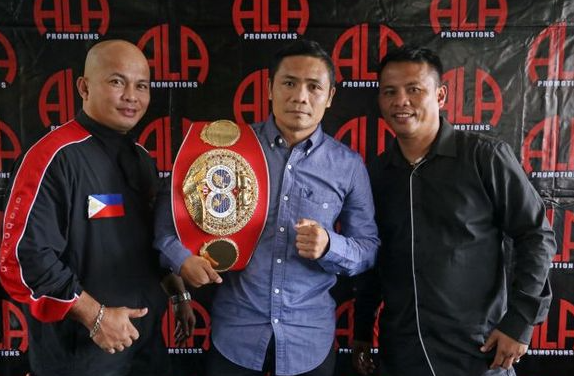
Known for: Training Milan Melindo, Donnie Nietes, and other ALA Gym stars
Affiliation: ALA Boxing Gym (closed in 2020)
One of the country’s top boxing technicians, Coach Edmund Villamor was the head trainer at the famed ALA Boxing Gym. He helped guide fighters like Milan Melindo and Donnie Nietes to world titles. Known for his strategic mind and attention to fundamentals, Villamor has helped raise the bar for coaching standards in the Philippines.
6. Joven Jimenez
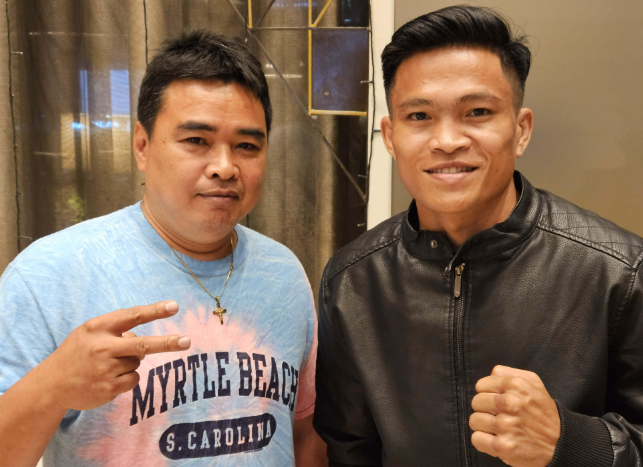
Known for: Trainer of IBF super flyweight champion Jerwin Ancajas
Affiliation: MP Promotions
Joven Jimenez is a rising star among Filipino boxing trainers. He coached Jerwin Ancajas to a world championship and built a reputation for technical precision, patience, and athlete-centered training. Jimenez trains out of Survival Camp in Cavite and is among the new generation of trainers making an international impact.
Read more:-
- Filipino boxers na may pinakamaraming world title defenses
- Power Rankings 2024-25: Nangungunang 10 Manlalaro sa NBA na Mas Bata sa 25
What Sets Filipino Boxing Trainers Apart?
- Heart over Hype: Filipino trainers often coach without large paychecks, but they stay because of passion.
- Deep Relationships: Many boxer-trainer partnerships in the Philippines are lifelong, grounded in loyalty and shared struggles.
- Grassroots Connection: Most top trainers started in local gyms, making them more connected to the fighters’ realities.
- Adaptability: With limited resources, Filipino boxing trainers learn to innovate—creating world champions with basic tools and sheer will.
The Next Generation of Trainers
With new athletes emerging and sports science becoming more accessible, the role of boxing trainers is evolving.
- Incorporating Technology: Video review, heart rate monitors, and online training tools are becoming part of modern Filipino boxing gyms.
- University Sports Programs: Colleges are starting to offer formal training and certification in sports and boxing.
- Female Trainers on the Rise: More women are entering the world of boxing coaching, particularly in amateur and youth divisions.
Frequently Asked Questions (FAQs)
1.Who are some of the top boxing trainers in the Philippines?
Top boxing trainers include Freddie Roach, Nonoy Neri, Buboy Fernandez, Edmund Villamor, and Joven Jimene
2.What makes Filipino boxing trainers unique?
Filipino trainers are known for their passion, loyalty, grassroots experience, and ability to develop champions with limited resources.
3.How do boxing trainers help fighters succeed?
They provide technical training, strategic planning, emotional support, and help build discipline and mental toughness.
4.Are there modern developments in boxing training in the Philippines?
Yes, more trainers are now using video analysis, fitness tech, and formal sports programs to enhance their coaching methods.
5.Can anyone become a boxing trainer in the Philippines?
Yes, with dedication, experience, and mentorship, anyone passionate about the sport can become a trainer—many start from local gyms or amateur boxing clubs.
